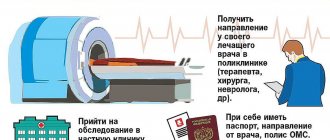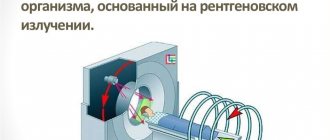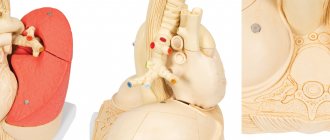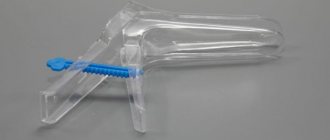Positron emission tomography (PET) is increasingly used to evaluate patients with cancer. The method has very high sensitivity but low resolution. To improve resolution, PET is combined with computed tomography (CT).
Unfortunately, price is the main limiting factor. Not every patient is able to pay 30-40 thousand rubles for one procedure. At the same time, everyone who needs such studies usually receives them with payment from the compulsory health insurance fund (CHI), but not always on time.
PET is widely used in oncology. Most studies are performed for the purpose of searching, staging, and differential diagnosis of tumors.
Other indications:
- assessment of neurological disorders,
- search for an epileptogenic focus in the brain,
- sometimes searching for inflammatory processes,
- assessment of myocardial hibernation.
The essence of PET is to search and localize areas of radiopharmaceutical (RP) fixation. A radiopharmaceutical is a chemical substance in the structure of which one or more atoms have been replaced with radioactive ones.
- Typically, fluorine with a mass number of 18 is used as a radioactive label. Radioactive fluorine is introduced into the structure of a chemical substance: deoxyglucose or amino acids, methionine, tyrosine.
- The drug is injected into a vein, distributed throughout the body, accumulating in certain areas.
- Zones of pathological (tumors, inflamed tissues, epileptogenic foci) and physiological (brain, kidneys, bladder) accumulation of radiopharmaceuticals are distinguished.
- As the radiopharmaceutical disintegrates, it releases particles that are captured by the detector. The device collects data from the entire body and creates a map of the distribution of radioactivity.
CT is performed to improve spatial resolution. This method allows you to more accurately assess where the lesion is located and what organs it is adjacent to. Read the differences between these methods here.
Who is the study for?
The study is indicated for patients with tumors of various locations with or without pathomorphological verification.
Purposes of PET/CT according to compulsory medical insurance:
- tumor identification;
- staging, search for metastases;
- assessment of indications for treatment;
- prevalence estimation;
- assessment of progression;
- control.
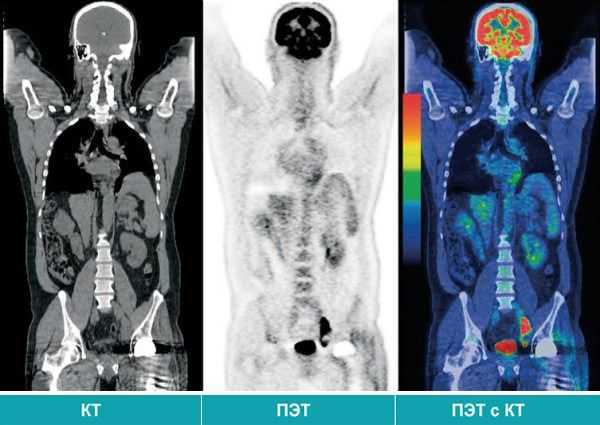
Conditions for the procedure
PET/CT will be performed if:
- detection of a suspicious neoplastic lesion;
- the presence of its morphological verification (not in all cases);
- availability of compulsory medical insurance policy and Russian citizenship;
- correctly completed study documents;
- appropriate preparation for the procedure;
- availability of quotas.
When can a study be refused?
Refusal to study is due to:
- lack of necessary documents (see list below);
- non-compliance with the rules of preparation for PET/CT;
- malfunction of diagnostic equipment;
- inappropriate preparedness of the subject;
- violation by the patient of the requirements of the medical organization;
- presence of contraindications.
PET/CT free of charge under compulsory medical insurance
The research can be done at your own expense, or it can be done for free at the expense of the compulsory medical insurance fund. Due to the high cost (30-40 thousand rubles or more), the second option is more acceptable. Several conditions must be met:
- be a citizen of the Russian Federation;
- have a compulsory medical insurance policy;
- issue a referral;
- undergo a medical examination at a clinic or hospital (not in all cases);
- wait for quotas.
After receiving all the necessary documents, you need to choose a clinic and sign up for the study.
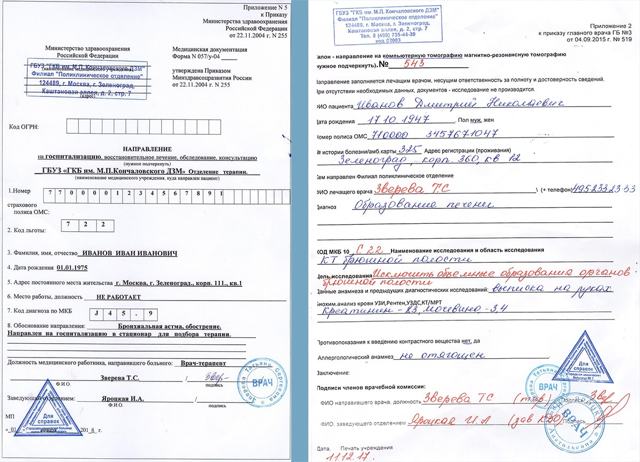
Required documents
To perform PET/CT under compulsory medical insurance, a referral is issued in form 057-u. The direction must contain an official seal (or a seal for certificates) and a stamp of the institution, the signature of the doctor, the head of the department.
The direction must contain:
- justification for the need for the procedure;
- type of study and purpose of implementation;
- patient information;
- full diagnosis;
- stage and localization of the tumor;
- anamnesis;
- treatment periods - dates, effectiveness;
- pathomorphological examination data (not in all cases);
- list of other diagnostic examinations: ultrasound, MRI, CT.
According to the order of the Moscow Department of Health dated May 17, 2019, a compulsory medical insurance study is performed by decision of the medical commission for the following indications:
- tumor processes without pathomorphological confirmation;
- solid lesions in the lungs larger than 8 mm;
- hepatocellular carcinoma;
- pernicious tumor of the pancreas;
- malignant neoplasm (malignant neoplasm) of the adrenal gland;
- Cancer of the kidney (except for the pelvis);
- thyroid cancer;
- unspecified cancer;
- chronic lymphocytic leukemia.
It is necessary to provide - a passport of a Russian citizen, an insurance policy, SNILS, a protocol from a medical commission (in cases where it is required by regulations), a blood test for creatinine (valid for 21 days), and data from previous studies.
Features of preparation for research
In order for the study to be more informative, it is necessary to adhere to certain rules.
- You need to refrain from physical activity (gym, hard work) for at least 24 hours.
- Do not eat foods rich in sugars and starch: fruits, white bread, potatoes, cereals.
- If the patient suffers from diabetes, you need to consult an endocrinologist, drawing up a special treatment regimen for the day of the procedure.
- On the day of the PET scan, you cannot eat for 6 hours before the procedure; you can only drink water without sugar or additives.
- You must arrive for the examination on time, in comfortable clothing with a minimum of metal objects and jewelry.
Attention: do not forget the direction, passport and other documents on the list. Otherwise the study will not take place.
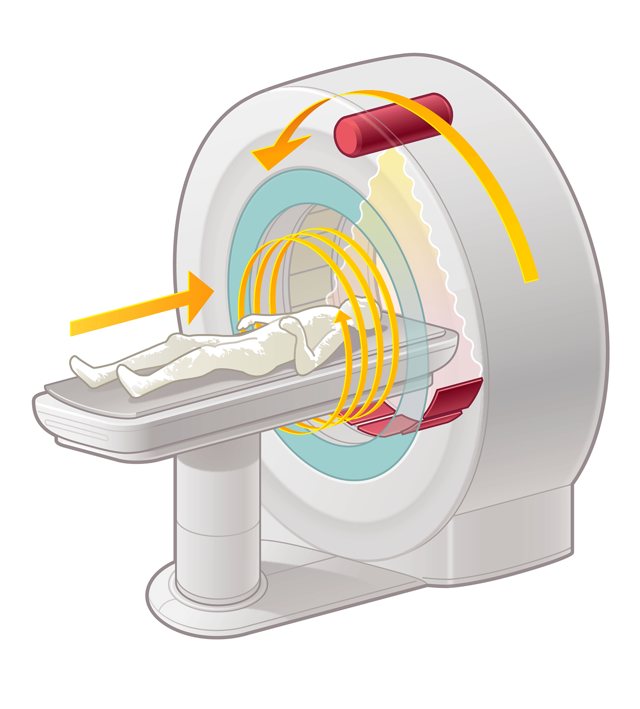
CT scan
Methodology
The patient arrives at the clinic at the appointed time (by appointment), delays are undesirable.
- First you need to do a rapid blood glucose test. If the reading is normal, the patient goes to the treatment room, where a radiopharmaceutical is injected into a vein.
- The patient waits in a special room for about an hour while the radioactive tracer is distributed and accumulates in the tissues. At this time, you need to lie quietly, moving as little as possible. You can take a little nap.
- Then the scanning begins. You need to lie down on the tomograph table, following all the commands of the device. First, a PET scan is performed, then a CT scan.
- The procedure takes several tens of minutes. After its completion, the patient spends another hour in the waiting room. This is necessary to reduce the radioactivity of the administered drug.
Results are usually provided the next day or after a few days (up to a week), depending on the workload of the clinic.
List of contraindications
Contraindications to the procedure include:
- pregnancy;
- conditions that do not allow you to remain still during the study;
- high blood glucose levels (above 11 mmol/l);
- less than 21 days after chemotherapy;
- less than 12 weeks after radiation therapy;
- less than 8 weeks after surgery;
- less than 5 days after biopsy.
Where can PET/CT be performed under compulsory medical insurance?
In Moscow:
- Federal State Budgetary Institution Main Military Clinical Hospital named after. Burdenko;
- National Medical Research Center of Oncology named after. Blokhin;
- Central Clinical Hospital No. 2 named after. Semashko;
- FSBI National Medical Research Center for Cardiovascular Surgery named after. Bakuleva;
- Federal State Budgetary Institution National Medical Research Center for Pediatric Hematology, Oncology and Immunology named after. Dmitry Rogachev;
- LLC "Medicine and Nuclear Technologies";
- Federal State Budgetary Institution National Medical Research Center of Obstetrics, Gynecology and Perinatology named after. Kulakova;
- JSC European Medical Center (EMC);
- OAO "Medicine".
Video
PET/CT can be performed free of charge if indicated. Unfortunately, waiting times are not acceptable for all patients. The only alternative—carrying out the research at your own expense—is also not suitable for everyone.

Pet CT in Moscow free of charge under the compulsory medical insurance policy
Since 2021, patients from the regions and the Moscow region are provided with quotas under which they can undergo PET CT in Moscow free of charge under the compulsory medical insurance policy as part of the compulsory health insurance program.
If you are from the region, you must obtain prior approval before traveling. To do this, you need to send extracts from your medical history using one of the following methods.
How to send documents?
You can send documents
by e-mail
- Or take a photo and send it to WhatsApp
- to the number
- +7
- Or upload to the application form
- Online
- Download
The examination for all citizens is carried out in Moscow
Telephone for consultations
8
After the coordinator of the oncology center confirms the possibility of undergoing the study, you can go to the center in Moscow.
Documents that need to be provided on site to get a PET CT scan done for free
- extracts from the medical history,
- compulsory medical insurance policy (original),
- SNILS (pension insurance certificate),
- passport or other identification document (original).
What else is needed?
You can do these points in advance, or do them already in Moscow.
- Receive a referral for a PET CT scan under compulsory medical insurance from the attending physician using form No. 057/u-04. If for some reason you were unable to obtain a referral at your place of residence, you can do so at a consultation with an oncologist at the Sofia Cancer Center.
- You can also preliminarily take blood tests for glucose and creatinine at your place of residence (the statute of limitations must be at least 21 days).
PET/CT according to compulsory medical insurance
PET/CT - positron emission tomography combined with computed tomography.
This type of diagnosis allows you to determine at the molecular level the presence of pathology in any organ, including the presence of cancer tumors at an asymptomatic stage.
How to sign up for PET/CT for free
In Moscow, it is possible to undergo examination free of charge under the compulsory medical insurance policy, including for non-residents.
Recording order:
- Get a referral from your attending oncologist or hematologist working in a medical organization operating in the field of compulsory medical insurance. People are sent for examination strictly for medical reasons.
- Make an appointment by calling the Unified Coordination Center for PET/CT registration from 9-00 to 18-00, except Saturdays, Sundays and holidays, or on the website https://pet-omc.ru
When calling, be prepared to provide the following:
- Full name, date of birth, citizenship
- contact number
- Registration address
- Compulsory medical insurance policy details
- Name of the medical organization and full name of the doctor who issued the referral
- Information provided in the direction
- Date of blood test for endogenous creatinine and its result
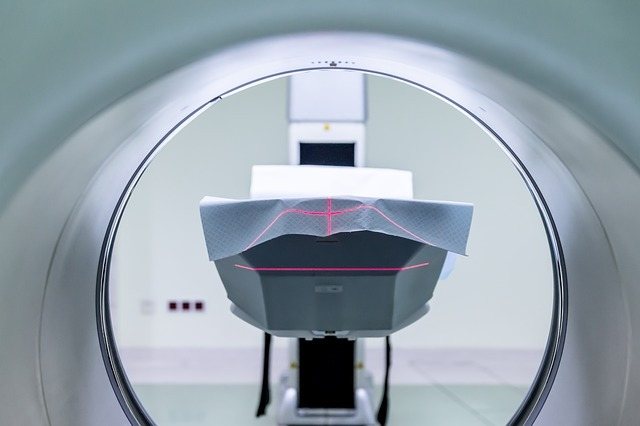
Where is PET/CT done in Moscow?
PET/CT under the compulsory medical insurance policy in Moscow is done at the following addresses:
- JSC "European Medical
- LLC "Medicine and Nuclear Technologies"
- Central Clinical Hospital No. 2 named after N.A. Semashko JSC Russian Railways
- Federal State Budgetary Institution National Medical Research Center of Oncology named after N.N. Blokhina
- FSBI National Medical Research Center for Cardiovascular Surgery named after A.N. Bakuleva
- Federal State Budgetary Institution Main Military Clinical Hospital named after Academician N.N. Burdenko
- FSBI National Medical Research Center for Pediatric Hematology, Oncology and Immunology named after Dmitry Rogachev
- Federal State Budgetary Institution National Medical Research Center of Obstetrics, Gynecology and Perinatology named after Academician V.I. Kulakova
What documents are needed
On the day of the examination, the patient should have the following with him:
- Passport of a citizen of the Russian Federation
- Compulsory medical insurance policy
- SNILS
- Referral from your attending physician
- The result of a blood test for endogenous creatinine. No more than 21 calendar days should pass from the date of delivery to the PET/CT scan
- Results of previous studies, results of histological studies, protocols of previously performed ultrasound, MRI, CT, PET/CT, extracts from medical documents related to the disease, including on disks (if available)
When will the result be
The PET/CT protocol and medical report are issued within the working day following the study.
The result on electronic media is issued upon request.
How to prepare
There is no need to be hospitalized, but you need to allocate 4-5 hours for the examination for preliminary preparation, administration of the radiopharmaceutical, PET/CT scan, rest after it and paperwork. In addition, sometimes a repeat scan may be required.
Observe the following:
- Eliminate physical activity for 1 day
- For 1-2 days, exclude from your diet foods high in: when studying with FDG - carbohydrates, when studying with C-choline and F-choline - cholines, when studying with C-methionine - proteins
- Don't eat anything for at least 6 hours
- Don't chew gum
- Wear clothes without metal parts: zippers, rivets, metal buttons
There are separate recommendations for patients with diabetes. For more detailed information on how to prepare for PET/CT, please contact doctors at PET centers. You should also be given a memo along with the directions.
Contraindications
Contraindications include the following conditions:
- Pregnancy
- Acute pathological conditions
- Infectious disease in active phase
- The patient’s serious condition does not allow him to remain in a motionless lying position for an hour.
- Blood serum glucose level over 11 mmol/l (during FDG study)
When can cancer patients be examined?
When studying with FDG, cancer patients can be examined at the following times:
- No earlier than 5 days after the biopsy is taken
- No earlier than 8 weeks after surgery
- Not earlier than 12 weeks after radiation therapy
- Not earlier than 2-3 weeks after the last administration of chemotherapy drugs during a course of chemotherapy
This delay will help avoid false results. The timing can be changed according to indications and in agreement with the radiologist and the doctor giving the referral.
Where can PET/CT be performed under compulsory medical insurance?
In Moscow:
- Federal State Budgetary Institution Main Military Clinical Hospital named after. Burdenko;
- National Medical Research Center of Oncology named after. Blokhin;
- Central Clinical Hospital No. 2 named after. Semashko;
- FSBI National Medical Research Center for Cardiovascular Surgery named after. Bakuleva;
- Federal State Budgetary Institution National Medical Research Center for Pediatric Hematology, Oncology and Immunology named after. Dmitry Rogachev;
- LLC "Medicine and Nuclear Technologies";
- Federal State Budgetary Institution National Medical Research Center of Obstetrics, Gynecology and Perinatology named after. Kulakova;
- JSC European Medical Center (EMC);
- OAO "Medicine".
Pet CT under compulsory medical insurance free of charge according to the policy in
- Receive a referral for PET CT from your attending physician using form 057, or a form approved by regional departments
- Call the single contact center of PET Technology to make an appointment for PET/CT by phone or fill out the feedback form
- Collect documents and results of previous research: Passport of a citizen of the Russian Federation or birth certificate for children (under 14 years old)
- Referral for PET/CT examination
- Current compulsory medical insurance policy
- SNILS
- The result of a blood test for endogenous creatinine (test period no later than 21 days at the time of the study)
To assess the extent of the disease and previous treatment, it is recommended to provide copies of the following documents:
- Results of histological examination (if available)
- Protocols of CT and MRI (disk) studies (if available)
- Protocols of PET/CT studies (disc)
Detailed information by phone 8 800-707-03-00
We, a PET Technology company, have been providing high-tech medical care to the population since 2011. Today the company is a federal network of medical centers in 15 cities of Russia, which specialize in: diagnostics
methods of positron emission and computed tomography,
treatment
of tumors using the CyberKnife robotic system,
radiation therapy
.
Quality Standards
Strict compliance with international medical protocols and standards
Prompt results
Disk with PET/CT data and description
Minimum wait
Quick registration for PET/CT examination
Our company’s specialists are radiologists, radiologists, and oncologists.
Regional divisions of PET Technology provide diagnostic services upon referral from doctors free of charge at the expense of compulsory medical insurance, as well as on a paid basis.
You can make an appointment by phone and get a free consultation. Be prepared to provide information about your current condition, complaints, diagnosis, results of a previous examination, data on the treatment performed.
Next section
What is PET/CT
Further
PET/CT according to compulsory medical insurance in Moscow
Positron emission tomography, performed with computed tomography, or PET/CT, is one of the most accurate and effective types of diagnostics used to identify and determine the status of cancer tumors. At the clinic of JSC "Medicine" (Moscow, Central Administrative District, 5 minutes from the Mayakovskaya metro station) you can undergo a PET/CT study as part of compulsory medical insurance.
Indications for PET/CT
The main indications for PET/CT are oncological diseases, significant problems in the functioning of the central nervous system and heart.
Also among the indications:
- stroke;
- epileptic seizures;
- sarcoma;
- malignant neoplasms of the intestines, liver, digestive glands, larynx, esophagus, lips, skin, tongue;
- tumors of the uterus, appendages, mammary and gonads;
- cancerous formations in the area of the testicles, prostate, penis;
- spread of metastases;
- melanoma;
- lymphoma;
- Alzheimer's disease;
- cardiac ischemia;
- Parkinson's disease.
Thanks to the innovative technique using the high-tech equipment of our clinic (TsAO, 2nd Tverskoy-Yamskaya Lane), it has become possible to detect cancer in the early stages and prevent their recurrence.
PET/CT diagnostics allows you to determine:
- extremely precise location of the tumor;
- degree of development of education;
- organs affected by metastases;
- aggressiveness of cancer cells;
- results of previous chemotherapy.
Features of PET/CT at JSC "Medicine" (clinic of academician Roitberg)
JSC "Medicine" in the Central District of Moscow has the most modern high-tech PET/CT scanners, which allow conducting a thorough study and determining the degree of metastasis of tumor cells. These are devices that have a high level of radiation protection and perform the fastest scanning possible. Now you can undergo such an examination under the compulsory medical insurance policy.
Indications for PET/CT
The main indications for PET/CT are oncological diseases, significant problems in the functioning of the central nervous system and heart.
Also among the indications:
- stroke;
- epileptic seizures;
- sarcoma;
- malignant neoplasms of the intestines, liver, digestive glands, larynx, esophagus, lips, skin, tongue;
- tumors of the uterus, appendages, mammary and gonads;
- cancerous formations in the area of the testicles, prostate, penis;
- spread of metastases;
- melanoma;
- lymphoma;
- Alzheimer's disease;
- cardiac ischemia;
- Parkinson's disease.
Thanks to the innovative technique using the high-tech equipment of our clinic (TsAO, 2nd Tverskoy-Yamskaya Lane), it has become possible to detect cancer in the early stages and prevent their recurrence.
PET/CT diagnostics allows you to determine:
- extremely precise location of the tumor;
- degree of development of education;
- organs affected by metastases;
- aggressiveness of cancer cells;
- results of previous chemotherapy.
How to get a quota for free treatment
There is no concept of “quota” in the laws and regulations of the Ministry of Health and Social Development - we are talking about the provision of high-tech medical care.
As a rule, when a person gets sick, he seeks help at his place of residence - there he can receive treatment free of charge under the compulsory medical insurance policy.
But not all types of assistance can be provided in a district clinic, hospital, or, if we are talking about cancer, in a district oncology clinic.
Then the patient has the right to specialized care in another city (if it has a specialized clinic) or high-tech care at a federal medical center. We can talk about complex surgery, radiation therapy, or unique complex treatment methods. But the resource of such centers is not endless - each can accept a certain number of patients. This number of free places is the quota.
Who is it entitled to?
The list of types of high-tech medical care (HTMC) and the procedure for its provision are determined by the order of the Ministry of Health and the resolution of the Government of Russia. According to the law, every Russian with a compulsory medical insurance policy can receive help - if there are medical indications.
Where can I get high-tech help?
High-tech assistance is provided by federal centers and specialized clinics not only in Moscow and St. Petersburg, but also in other cities.
By order of the Ministry of Health, a list of federal centers receiving funding from the federal budget was approved.
And on the website of the Compulsory Health Insurance Fund (MHIF) you can find lists of all medical institutions by region operating in the compulsory medical insurance system, including those that provide high-tech care.
Moreover, the second list includes not only public, but also private clinics that receive reimbursement from the regional Compulsory Medical Insurance Fund. Some of them even provide high-tech assistance under compulsory medical insurance - for example, patients with oncology can undergo PET-CT (positron emission tomography combined with computed tomography) at the European Medical Center in Moscow.
Does registration matter?
Formally, no, but in practice, treating doctors and health officials take the territorial factor into account and do not send a patient from Tolyatti to Moscow if the required type of care is provided in Samara.
Patients with oncology should remember that chemotherapy is not considered high-tech care - therefore it will be carried out at a dispensary at the place of residence.
VMP includes, for example, radiation therapy and various types of surgical interventions.
Where to begin?
By contacting the attending physician, who will issue a referral to receive high-tech care - with his signature and the signature of the head physician of the clinic (or oncology clinic), on letterhead and with a seal. The doctor must also prepare an extract from the patient’s medical record with the diagnosis, its ICD code and the results of diagnostic procedures, as well as information about the patient’s condition.
What documents will be needed?
In addition to the referral and discharge, you need to prepare a copy of the patient’s passport, and if a child needs help, a copy of the birth certificate and a copy of the passport of his legal representative.
You will also need copies of compulsory medical insurance and a copy of SNILS (pension insurance certificate), consent to the processing of personal data and an application for obtaining VMP.
In the application you must indicate your last name, first name, patronymic, registration address, passport details and all contact information: postal address, telephone and email address.
Where should I take these documents?
Further actions depend on whether the high-tech care the patient needs is included in the basic compulsory medical insurance program. You can check this by reading the appendix to government decree No. 1403 of December 19, 2021.
If the required type of assistance is included in the compulsory medical insurance program, documents can be sent directly to the organization (federal center) that provides assistance. This can be done either by the patient himself or by the referring clinic or cancer clinic (the period for sending documents from a medical organization is no more than three days).
If the required type of assistance is not included in the basic compulsory medical insurance program, the documents should be sent to the high-tech medical care department of the department or health committee of the region in which the patient is registered.
In Moscow it is located at 2nd Shchemilovsky Lane, building 4a building 4.
The regional department commission is obliged to make a decision within 10 days and, if it is positive, issue the patient a coupon to receive VMP.
What to do if they don’t give you a referral?
If for some reason the attending physician does not provide a referral for high-tech care, the patient can independently contact the federal center that provides the required type of high-tech care.
There you need to bring all available medical documents confirming the diagnosis, extracts and test results.
The decision that the patient needs VMP can be made by the so-called quota committee of the selected clinic, and with this decision it will be necessary to go to the regional health department for a voucher for VMP.
Can’t you contact the Ministry of Health right away?
It is possible, but only in a few cases: if the patient does not live in Russia, if he does not have registration at the place of residence, or if the health authority at the place of residence refused to issue the patient a voucher for VMP (in fact, you can try to challenge this decision in the Ministry of Health).
How long will it take to receive a quota and hospitalization?
Within a week (7 days) after receiving a quota - a coupon for high-tech care - the medical organization where the patient will receive this care must make a decision on hospitalization.
You can check your voucher status here.
But the hospitalization date may be set later - weeks or even months later, depending on the urgency of the operation, the patient’s condition and the availability of budget places (if there are none, the person who received the quota will be put on a waiting list).
What to do if you are still forced to pay?
Indeed, even a patient who has received a quota in a clinic where he is provided with high-tech care may be required to pay for certain medical services.
For example, during a bone marrow transplant, the operation itself will be paid for by the Compulsory Medical Insurance Fund, and the search for an unrelated donor will be paid for by the patient.
During radiation therapy, you may additionally be required to pay for special marking of the irradiation sites (this is necessary so that the beam hits exactly the site of the malignant formation). It often turns out that preoperative examination and tests are a paid service.
Before paying, you must contact the insurance company that issued the compulsory medical insurance policy and the health department to clarify which services can be received free of charge and for which the clinic has the right to charge a fee.
Where to get a Pat CT scan in Moscow?
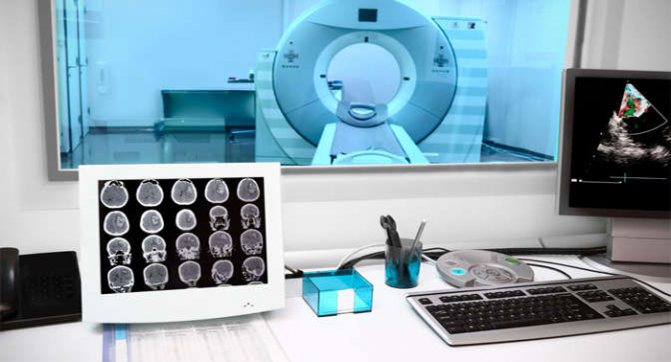
Oncological diseases have a number of specific characteristics, among which early diagnosis ranks first. Those whose neoplasm is detected by oncologists earlier have a greater chance of being completely cured. And vice versa. Therefore, a new research method, called Pat CT, has become the most popular over the past few years. Positron emission tomography in combination with computed tomography (this is what Pat CT stands for) allows doctors to “see” the tumor with their own eyes and draw appropriate conclusions.
Positron emission computed tomography allows you to accurately examine and trace the dynamics of the development of metabolic processes in organ cells. Pet CT diagnostics uses an imaging system at the molecular level, so the results are as accurate as possible. When conducting a Pat CT examination, the patient does not need to undergo additional tests or sign up for other examinations, as is the case with MRI or classical computed tomography. These studies do not show the passage of metabolic processes in the cells of the body, but only give a general idea that changes have occurred in the anatomical structure of the organ.
A specific answer to the question of exactly what changes have occurred can only be given by Pat CT diagnostics, since during the study all metabolic changes in the functioning of cells are monitored, which will later lead to anatomical changes in a particular organ. Pat CT diagnoses the presence of a tumor much earlier, allowing for faster treatment and increasing the chances of a full recovery.
Scientists were able to establish that cancer cells use more glucose for their vital functions than healthy ones, therefore, in the area where they are located, an increased release of energy will be recorded, which is detected by Pat CT diagnostics. The study involves radiopharmaceuticals, a radionuclide whose structure is specially labeled. This makes it easier to identify. The substance has a very short lifespan, so it simply does not have time to cause significant harm to the body. One such substance is 18F-FDG, in which all glucose particles are labeled. But there are no universal radionuclides that would suit everyone. For each patient, an individual substance is prepared in the laboratory, based on medical prerequisites. The radionuclide must be produced on the day of the study so that the results obtained during the PET CT diagnostics are as accurate as possible.
A combination of X-rays and computer examination allows a comprehensive assessment of the condition of the cells and whether they are functioning correctly. In addition, the doctor immediately becomes clear whether changes have occurred in the anatomical structure of the organs, since he receives a three-dimensional picture of the passage of metabolic processes in the cells of the body.
